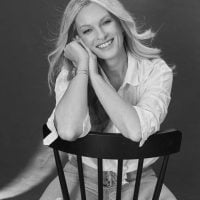
Dr. Susan David, the South African psychologist, eloquently said, “Discomfort is the price of admission for a meaningful life,” in a Ted Talk she gave a few years back.
For me, it captured everything I had been thinking and saying for a while.
It has stayed with me and has been the basis of much of my messaging and work.
We live in a world where we do anything and everything to avoid feeling discomfort. Something painful happens and we are quickly searching for distractions and things to make us busy. We pretend all is well. We hide our pain, our sadness, our grief. We don’t want to be seen as weak. As vulnerable. As negative. We don’t want others to think we aren’t coping.
We could be a broken-down mess, writhing in emotional pain, but we’ll post a “happy snap” on social media. Best all our followers think we’re living our best lives. Then we’ll quickly find the next thing to distract ourselves.
We crack open the liquor cabinet. We use alcohol or drugs to numb the pain. We throw ourselves into work, obsessively focused on what needs to be done and creating more work to busy ourselves. We join the gym or some other heavy exercise program to ensure our body is so physically exhausted that we are too tired to think.
We’re heartbroken about a relationship ending, so we quickly start to find a replacement, even if just sex, anything to validate and make us feel worthy and better about ourselves. We cannot be alone. We do everything possible except allow ourselves to feel. Allow ourselves to acknowledge our loss and pain. Allow ourselves to sit in the messy and often ugly darkness of discomfort.
We have such an aversion to discomfort, we cannot even sit with someone in their pain. We put our comfort before the suffering of another. We struggle to sit with someone who is grieving. We find it difficult to listen and simply be there for another. We want to help. We want to be supportive. After all, we are caring and compassionate, yet time and time again people are alone in their pain.
I am often both shocked and saddened when I speak to people on the suicide prevention line I volunteer for. People calling because they have nobody they can talk to. Nobody who will listen and comfort them. Nobody who will hold space and honour them and their suffering. Call. After. Call. After. Call. I hear the same stories.
If we keep ignoring our discomfort, our pain, our losses, our trauma, and our grief, we not only close ourselves off to authenticity, purpose, and meaning, we also create the perfect storm in our bodies, a storm that left unfelt, unheard, unseen, and unhealed will slowly build, spreading little drops of poison into every cell of our body. Repressed emotions and feelings, unresolved grief, and trauma are toxic. They affect us physically, emotionally, spiritually, behaviourally, and socially. They can and do affect every facet of our lives.
Somehow we have learnt a myriad of unhealthy coping mechanisms. As soon as sh*t goes down, out come our bag of distractions. The toxic positivity movement has taught us to just “think ourselves happy.” They invalidate others’ pain and feelings. They dismiss another’s suffering and have a list of platitudes at the ready.
I’m not sure how we got here, but it’s killing us. It’s teaching us that faking ourselves and our feelings is better then being real because only the positive and happy ones are accepted. It’s taught us that there are “good” emotions and feelings, and “bad” emotions and feelings. When in reality, all emotions and feelings are valid.
It’s created a society of people who constantly need to be stimulated and distracted to feel worthy. To feel alive. It’s created a desperate need to search externally for happiness—you keep searching, you keep acquiring, yet you find yourself in the same space. Nothing is ever enough. The more you have, the more you want. You need something outside of yourself to feel whole, then desperately cling to that because without it, you will be lost and again have to start distracting yourself.
Years ago, I would not have understood what Dr. David was trying to say because I was conditioned and had limiting beliefs of how one should behave and react to fit in. We all wander around playing our parts, perceiving ourselves one way, whilst everyone else perceives us differently. Life is literally a stage, and in many ways, we are all acting, especially when we want to fit in. We want people to like us. We want to be successful. Or rich. Or loved. And the truth is wearing those masks is exhausting.
“Discomfort is the price to pay for a meaningful life,” I get it now. In fact, it resonates deeply within me. How can we ever be truly happy if we are not living our external life to match our internal life? How can our life have true meaning if we are not prepared to understand ourselves? If we are unable to open ourselves up to different ideas, beliefs, and insights? If we are not willing to be uncomfortable, and we try and avoid every painful thing that happens to us? If we can’t be alone because when we are alone, our inside voice starts talking loudly and we don’t want to hear it?
We don’t want to accept our own flaws and toxicity. We don’t want to take a look inside ourselves because we are scared what we may discover, and it’s so much easier to blame someone else rather than take responsibility for our own toxic sh*t. How can we have a meaningful life if we don’t even know what gives us purpose and meaning because we are too busy copying everyone else? We are too busy being focused on what everyone thinks of us rather than what we think of ourselves.
So often, we don’t love ourselves or know ourselves enough to honour who we truly are. We study because we are expected to achieve a certain level of education, so many people have degrees in things they don’t even like. We work in jobs that are deemed acceptable by family and friends, even if that job doesn’t attune to our values. We buy things we don’t need just so we look the part. In some cases, we even stay in relationships that are not conducive to happiness because of external judgement and fear. How does any of this equal a meaningful life? Safe and maybe even comfortable but definitely not meaningful.
We find meaning when we are finally brave enough to look inside. We find meaning when we finally decide to take notice of how we feel and what our emotions and feelings are trying to tell us. We find meaning when we can sit in our discomfort, like really sit in the murky, dirty, discomfort, a place where the sharp shards of pain are cutting. Where the shadows step out of the darkness and into the light because we’ve finally invited them in. Where we fall into the unknown, terrified yes, but ready to see, feel, and listen. We find meaning when we learn to accept the whole of who we are and acknowledge that the “negative” and “bad,” are simply there to teach us and help us grow.
We can’t live a life of meaning if we are unprepared to face our discomfort. We don’t heal, grow, and flourish in a place of comfort, avoidance, and distraction. We wilt away, losing more and more of who we truly are along the way. We live our lives in an external shell, never realising that our internal shell is screaming to be heard.
Life without deep meaning and purpose is sadly not really a life at all. It’s a production. A show. A façade we unknowingly created to fit in. It leads to emptiness because of the continual need to fill ourselves externally to avoid our discomfort.
When we learn to pay the price of admission, we begin to find our meaning.
And a life of true meaning is a life we should all aspire to because we’re no longer simply existing—we are truly, deeply living.
Here’s Dr. Susan David’s Ted Talk:
~
Please consider Boosting our authors’ articles in their first week to help them win Elephant’s Ecosystem so they can get paid and write more.











Read 21 comments and reply